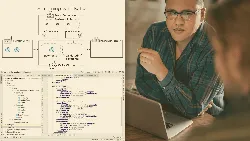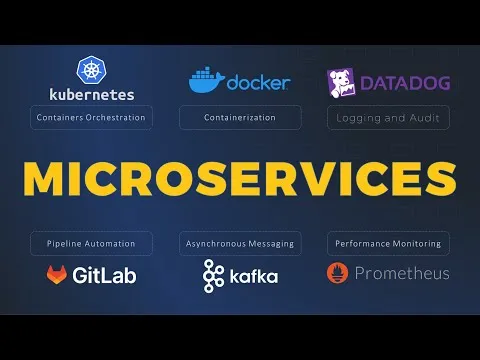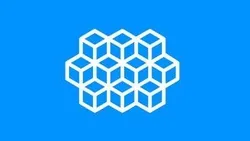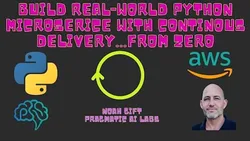
Designing Event-driven Applications Using Apache Kafka Ecosystem 
This course provides an introduction to designing event-driven applications using the Apache Kafka Ecosystem. Students will learn the basics of creating an event-driven system using Apache Kafka and the tools available in the ecosystem. They will gain an understanding of how to use Apache Kafka to build an event-driven system. ▼
ADVERTISEMENT
Course Feature
![]() Cost:
Cost:
Free Trial
![]() Provider:
Provider:
Pluralsight
![]() Certificate:
Certificate:
Paid Certification
![]() Language:
Language:
English
![]() Start Date:
Start Date:
On-Demand
Course Overview
❗The content presented here is sourced directly from Pluralsight platform. For comprehensive course details, including enrollment information, simply click on the 'Go to class' link on our website.
Updated in [March 20th, 2023]
What does this course tell?
(Please note that the following overview content is from the original platform)
Apache Kafka has become one of the most popular tools available when it comes to enterprise messaging and streaming. In this course, you will learn the basics of creating an event-driven system using Apache Kafka and the ecosystem around it.
Companies today need to react faster than ever to customer needs, and classic methods of handling data may not be enough for the ever-changing world of technology. In this course, Designing Event-driven Applications Using Apache Kafka Ecosystem, you will gain the ability to design a real-time event-driven system. First, you will learn the basics of event-driven systems and how to get into the mindset of creating one. Next, you will discover Apache Kafka and several tools for integrating with it to make the process even smoother. Finally, you will explore how to think the “streaming” way by processing data as it arrives in your system. When you are finished with this course, you will have the skills and knowledge of Apache Kafka and the ecosystem around it needed to design an event-driven system.
We consider the value of this course from multiple aspects, and finally summarize it for you from three aspects: personal skills, career development, and further study:
(Kindly be aware that our content is optimized by AI tools while also undergoing moderation carefully from our editorial staff.)
What skills and knowledge will you acquire during this course?
This course will provide learners with the skills and knowledge needed to design an event-driven system using Apache Kafka and the ecosystem around it. Learners will gain an understanding of the fundamentals of event-driven systems and how to get into the mindset of creating one. They will also learn how to think the “streaming” way by processing data as it arrives in their system. Additionally, learners will gain an understanding of Apache Kafka and several tools for integrating with it.
How does this course contribute to professional growth?
This course provides learners with the skills and knowledge needed to design an event-driven system using Apache Kafka and the ecosystem around it. It covers the fundamentals of event-driven systems and how to get into the mindset of creating one, as well as introducing Apache Kafka and several tools for integrating with it. Learners will also gain the ability to think the “streaming” way by processing data as it arrives in their system. By completing this course, learners will have the necessary skills and knowledge to design a real-time event-driven system, contributing to their professional growth.
Is this course suitable for preparing further education?
This course is suitable for preparing further education in the field of event-driven systems and Apache Kafka. It provides learners with the basics of creating an event-driven system using Apache Kafka and the ecosystem around it. Learners will gain the ability to design a real-time event-driven system, understand the fundamentals of event-driven systems and how to get into the mindset of creating one, and discover Apache Kafka and several tools for integrating with it. Additionally, learners will learn how to think the “streaming” way by processing data as it arrives in their system. Upon completion of the course, learners will have the skills and knowledge of Apache Kafka and the ecosystem around it needed to design an event-driven system.
Course Provider

Provider Pluralsight's Stats at AZClass
Pluralsight ranked 16th on the Best Medium Workplaces List.
Pluralsight ranked 20th on the Forbes Cloud 100 list of the top 100 private cloud companies in the world.
Pluralsight Ranked on the Best Workplaces for Women List for the second consecutive year.
AZ Class hope that this free trial Pluralsight course can help your Microservices skills no matter in career or in further education. Even if you are only slightly interested, you can take Designing Event-driven Applications Using Apache Kafka Ecosystem course with confidence!
Discussion and Reviews
0.0 (Based on 0 reviews)
Explore Similar Online Courses

Correlating Events with Transactions in Splunk

Delivering Value Quickly with ICAgile

Python for Informatics: Exploring Information

Social Network Analysis

Introduction to Systematic Review and Meta-Analysis

The Analytics Edge

DCO042 - Python For Informatics

Causal Diagrams: Draw Your Assumptions Before Your Conclusions

Whole genome sequencing of bacterial genomes - tools and applications

Microservices Explained in 5 Minutes

Microservices Architecture and Implementation on NET 5


Start your review of Designing Event-driven Applications Using Apache Kafka Ecosystem